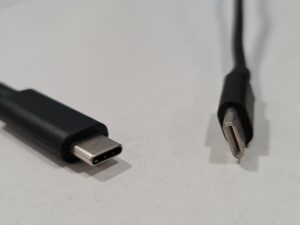
Back in September, the European Union (EU) submitted a proposal that would make the adoption of the USB-C format by all smartphone and electronic device manufacturers, including Apple, a mandatory requirement. Earlier today, that proposal became legislation, after the body’s parliament unanimously voted for it to become law.
The EU vote for USB-C to become the standard was ruled after an overwhelming landslide victory of 602 for it, 13 against, and eight abstaining from voting. Bear in mind, this step is merely a formality and the final decision will still need to be approved by the European Council, but for the most part, it’s safe to say that this ruling is in the bag.
We welcome @europarl_en adoption of our proposal for a common charger to reduce electronic waste and the fuzz of having several cables for different devices.
USB Type-C port will be the new standard for portable devices by the end of 2024.#DigitalEU pic.twitter.com/R1gPbIBY4D
— European Commission
(@EU_Commission) October 4, 2022
Once approved by the EU council, the USB-C standard should come into force 20 days after it gets printed in the EU Official Journal and will be applicable to new electronic devices that appear 24 months after that, and 40 months for laptops. As for what sort of electronic devices are covered in the new legislation, the list includes e-readers, earbuds, keyboards, mice, portable navigation systems, smartphones, tablets, digital cameras, headphones and headsets, handheld game consoles, and portable speakers that are rechargeable via cable and have a power delivery of up to 100W. Again, laptops are also on the list, but as we mentioned, they have an extension but from what we’ve seen, there are already several brands that have begun providing the connectivity standard as a charging option.
Exemptions to the rule are devices that are too small to feature a USB-C port. So, that list includes smartwatches and fitness trackers. However, it is likely that there will be some revisions to the legislation that it will eventually include said products. Of course, the one company that will obviously be affected by this change is Apple, who has vehemently stuck to its Lightning Cable standard for its iPhone since the device’s inception. That being said, there are rumours that the fruit company could beat the EU to the punch and release its first ever USB-C iPhone as early as next year.
The post EU Passes Legislation On USB-C Charging Standard appeared first on Lowyat.NET.
0 Commentaires